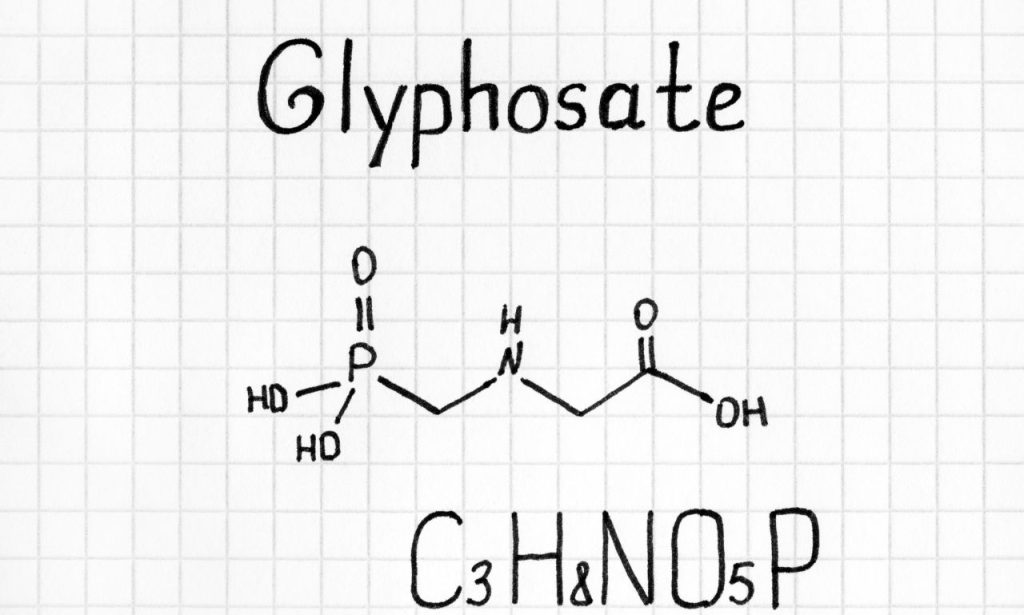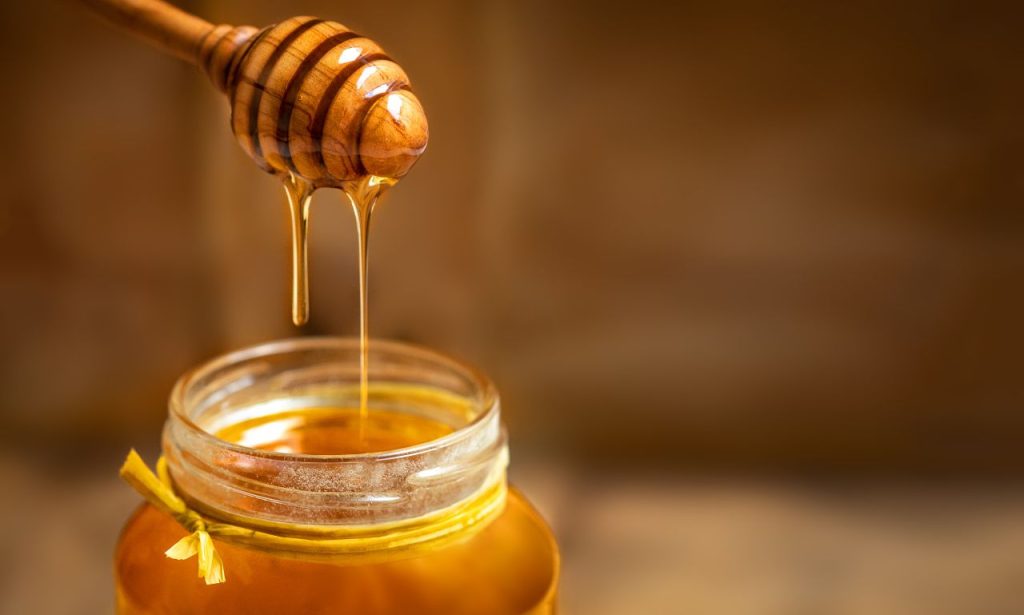In a world where agricultural chemicals are increasingly pervasive, ensuring the purity of honey is crucial for health-conscious consumers. You might wonder how to tell if honey is glyphosate free, especially given the growing concerns about the presence of this herbicide in various food products. This comprehensive guide will equip you with the knowledge and tools to confidently identify glyphosate-free honey.
Understanding Pure Honey
Pure honey is more than just a sweet treat; it’s a natural product with numerous health benefits. To truly appreciate the importance of glyphosate-free honey, you need to understand what constitutes pure honey. Pure honey is unadulterated, free from additives, and retains all its natural enzymes, vitamins, and antioxidants.
Characteristics of Pure Honey
- Unprocessed: Pure honey is raw and unprocessed, meaning it hasn’t been heated or pasteurized.
- Unfiltered: It retains pollen, which can be seen as small particles within the honey.
- Natural Aroma and Flavor: Pure honey has a distinctive aroma and flavor profile that varies depending on the flowers the bees have visited.
Recognizing Glyphosate and Its Impact

What is Glyphosate?
Glyphosate is a broad-spectrum systemic herbicide used to kill weeds and grasses that compete with crops. It’s the active ingredient in many herbicides, including the widely known Roundup. Glyphosate works by inhibiting a specific enzyme pathway necessary for plant growth. Its widespread use in agriculture has led to its presence in various food products, including honey.
Health Concerns Associated with Glyphosate
The potential health risks of glyphosate exposure have been a topic of significant debate. Some studies suggest that glyphosate may be linked to various health issues, including:
- Cancer: The International Agency for Research on Cancer (IARC) classified glyphosate as “probably carcinogenic to humans.”
- Endocrine Disruption: Glyphosate may interfere with hormone function.
- Gut Health: It can disrupt the gut microbiome, leading to digestive issues.
Understanding these risks underscores the importance of ensuring your honey is glyphosate-free.
Certifications and Labels
One of the most reliable ways to ensure that your honey is glyphosate-free is by looking for specific certifications and labels.
Identifying Brands with Glyphosate-Free Certifications
Several certification programs test for glyphosate residues in honey. Brands that carry these certifications have undergone rigorous testing to ensure their products are free from glyphosate. Some of the most recognized certifications include:
- Glyphosate Residue Free Certification: Offered by organizations like The Detox Project, this certification indicates that the product has been tested and found to contain no glyphosate residues.
- Non-GMO Project Verified: While not exclusively for glyphosate, this certification often involves testing for various contaminants, including glyphosate.
Importance of Organic Honey Certifications
Organic certifications, such as USDA Organic, require that the honey is produced without synthetic pesticides, including glyphosate. While not a guarantee of zero glyphosate, organic honey has a significantly lower risk of contamination.
Testing for Purity
If you want to be absolutely sure that your honey is glyphosate-free, you can consider testing it yourself. There are both home testing methods and more precise laboratory testing options available.
Home Testing Methods
While not as accurate as lab tests, home testing kits can provide a basic indication of glyphosate presence. These kits typically involve mixing a sample of honey with a reagent and observing for a color change.
Laboratory Testing Options
For definitive results, you can send a sample of your honey to a laboratory that specializes in glyphosate testing. These labs use advanced techniques like liquid chromatography-tandem mass spectrometry (LC-MS/MS) to detect even trace amounts of glyphosate.
Farming Practices
The agricultural practices in the areas where bees forage directly influence honey quality. Understanding these practices helps in choosing honey that’s more likely to be glyphosate-free.
Conventional vs. Sustainable Farming Practices
- Conventional Agriculture: Glyphosate is often used to keep fields free of weeds, which unfortunately allows residues to end up in honey. Bees are not picky about their flowers; they forage everywhere, including plants sprayed with chemicals.
- Sustainable and Organic Farming: Practices like crop rotation and integrated pest management reduce reliance on chemical herbicides. Honey produced in such environments is much less likely to contain residues.
- Integrated Pest Management (IPM): This practice involves managing pests in ways that minimize environmental damage and the use of harmful chemicals. IPM helps create an environment where bees can thrive without the risk of chemical exposure.
- Crop Diversity and Organic Fertilizers: Utilizing a diverse range of crops and organic fertilizers rather than synthetic chemicals reduces glyphosate use. This means healthier soils, healthier crops, and ultimately, healthier honey. Bees benefit from this diverse and nutritious forage.
Why This Matters for Honey Quality
Choosing organic honey or honey from farms using sustainable practices reduces the risk of contamination and promotes a clean supply chain. This matters not just for our health but also for the health of bees and their colonies. Bees exposed to fewer chemicals are healthier and more productive, ensuring the longevity of the hive and the quality of the honey produced.
Additionally, the presence of fewer contaminants supports the environment as a whole. Sustainable agricultural practices preserve soil health, reduce water pollution, and create ecosystems that promote diverse wildlife. By choosing honey from these sources, you are playing an essential part in a much larger cycle of environmental stewardship.
Comparison Table: Home Testing vs. Laboratory Testing
| Feature | Home Testing | Laboratory Testing |
| Cost | Low | High |
| Accuracy | Moderate | High |
| Time | Quick (minutes) | Longer (days to weeks) |
| Equipment Required | Minimal | Specialized |
| Suitable for Regular Testing | Yes | No |
Agricultural Practices and Their Implications
Understanding the agricultural practices that may lead to glyphosate contamination can help you make informed choices about the honey you purchase.
Understanding Farming Practices
Glyphosate is commonly used in conventional farming to control weeds. Unfortunately, this practice can lead to glyphosate residues in crops and, subsequently, in honey produced by bees that forage on these plants.
Role of Sustainable Farming in Honey Purity
Sustainable farming practices, such as crop rotation, organic farming, and integrated pest management, reduce the need for chemical herbicides like glyphosate. Honey produced in areas where these practices are employed is less likely to be contaminated with glyphosate.
Consumer Resources

Looking to buy honey that’s truly pure and free from harmful residues? Here’s your checklist:
- Look for Certifications: Check for certifications like USDA Organic or Glyphosate Residue Free.
- Check the Label for Location: Honey from remote, natural areas, like the Wollemi Wilderness, is less likely to be contaminated.
- Research Brands: Brands like Heavenly Organics are known for their efforts to produce clean honey.
- Online Databases: Resources like The Detox Project and Consumer Reports maintain lists of honey brands tested for glyphosate.
- Buy Local When Possible: Local beekeepers who practice organic or sustainable farming may offer some of the purest honey available.
- Avoid Adulterated Products: Make sure the honey you buy isn’t mixed with cheaper sweeteners like high-fructose corn syrup or rice syrup.
- Transparency: Choose brands that provide detailed information about their production practices, including testing for contaminants.
Top Brands Offering Glyphosate-Free Honey
Here’s a rundown of honest honey brands you can consider for clean, glyphosate-free options:
- Heavenly Organics – Offers organic honey with certifications for purity.
- Wedderspoon – Known for its monofloral Manuka honey and rigorous testing.
- Nature Nate’s – Focuses on raw honey, which retains natural benefits and undergoes testing for residues.
- Y.S. Eco Bee Farms – Certified organic and focuses on a transparent supply chain.
- Bee Harmony – Combines sustainable beekeeping with a focus on minimizing contamination, offering honey that’s as natural as possible.
- Honest Raw Honey Co. – Specializes in raw, unfiltered honey and ensures that each batch is tested for chemical residues.
Why Glyphosate-Free Honey Matters for Health
Glyphosate and Your Health
Glyphosate in honey might be in small quantities, but these small amounts can still have big effects over time, especially for those concerned with optimal health.
- Blood Sugar Levels: Glyphosate can interfere with natural processes that regulate blood sugar levels.
- Digestive Health: Your gut bacteria might not appreciate the chemical cocktail glyphosate brings. Gut microbiome disruption can lead to health conditions you’d rather avoid.
- Impact on Bee Health: When bees are exposed to chemical contamination, it affects colony health and may reduce honey production overall.
- Potential Long-term Effects: Chronic exposure to glyphosate could lead to various health issues, even at low doses. From affecting metabolic processes to increasing inflammation, the potential dangers make avoiding glyphosate important for optimal health.
The Problem with Regular Honey
Not all honey is pure, and adulterated honey is a bigger problem than people realize. Some products may include cheap ingredients like sugar syrups, while others may contain additional pesticides. This makes it crucial to be aware of the source of your honey.
Regular honey that has not undergone adequate testing may carry various harmful chemicals beyond glyphosate, including antibiotics, heavy metals, and other pesticides. Choosing honey without considering its origins may result in exposure to contaminants that outweigh the natural health benefits.
The Benefits of Choosing Glyphosate-Free Honey
- Natural Health Benefits: Pure, glyphosate-free honey provides antibacterial properties, vitamins, and antioxidants without the baggage of harmful chemicals.
- Support for Sustainable Agriculture: By choosing certified brands, you’re voting with your wallet for transparent supply chains and fair trade standards that benefit everyone, from farm workers to consumers.
- Better for Bees: The use of sustainable farming techniques reduces chemical exposure for bees, contributing to healthier bee populations and, consequently, higher-quality honey. Bee health is critical not just for honey production but for the entire ecosystem.
- Improved Quality: Glyphosate-free honey tends to retain its natural enzymes, vitamins, and trace elements, providing enhanced nutritional value and natural sweetness. The flavor of pure honey is more complex and authentic, reflecting the variety of flowers from which the bees collected nectar.
Types of Honey to Consider
If you want the best honey for your health, consider these options of honey:
- Manuka Honey: Renowned for its antibacterial properties, Manuka is often a top choice for health benefits. Just ensure it’s from a reputable source.
- Raw Honey: Not heated or pasteurized, raw honey is packed with natural goodness, including pollen and enzymes.
- Organic Honey: With certification, organic honey ensures fewer harmful chemicals and residues, making it a reliable choice.
- American Honey Samples: Honey from rural or remote wilderness areas is likely to be purer and free from most contaminants.
- Wildflower Honey: This honey comes from bees that forage on a wide variety of wildflowers, reducing the risk of contamination compared to single-crop farming.
- Acacia Honey: Light and floral, acacia honey is less likely to crystallize and has a natural purity when sourced from reputable producers.
- Buckwheat Honey: Darker and richer, buckwheat honey is known for its high antioxidant content, making it an excellent choice for supporting health.
Each type of honey has unique characteristics that can cater to different health needs and taste preferences. Whether you prefer the distinct flavor of Manuka or the light floral notes of wildflower honey, always ensure the honey is sourced from a reputable producer committed to purity.
Conclusion
Ensuring that your honey is glyphosate-free involves a combination of understanding honey purity, recognizing the impact of glyphosate, seeking out certified products, and potentially testing the honey yourself. By being informed and proactive, you can enjoy the numerous benefits of pure, glyphosate-free honey with confidence.
ALSO READ: What Are Good Businesses to Start in Florida?
FAQs
Pure honey often has a rich, golden color and a thick consistency. It may also contain small particles of pollen.
While organic honey is less likely to contain glyphosate, it’s not an absolute guarantee. Testing is the only way to be certain.
Glyphosate can enter honey through bees foraging on plants treated with the herbicide.
Yes, natural weed control methods include mulching, hand weeding, and using organic herbicides.
Look for honey brands with glyphosate-free certifications or check online databases of tested honey brands.




